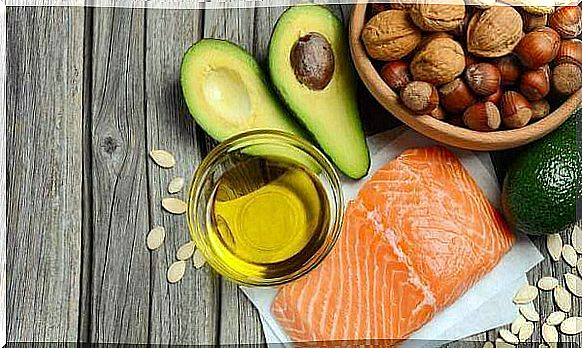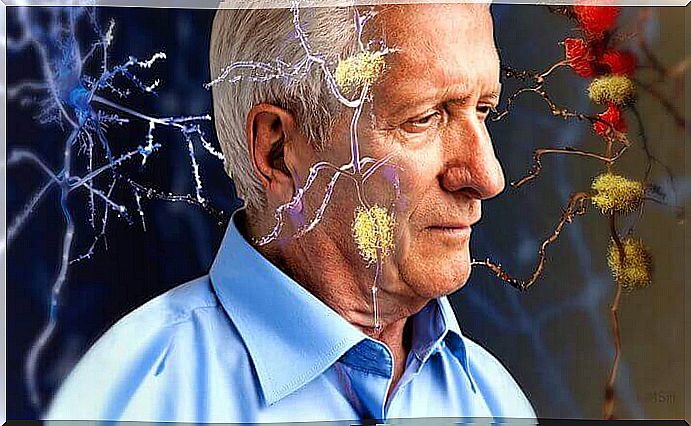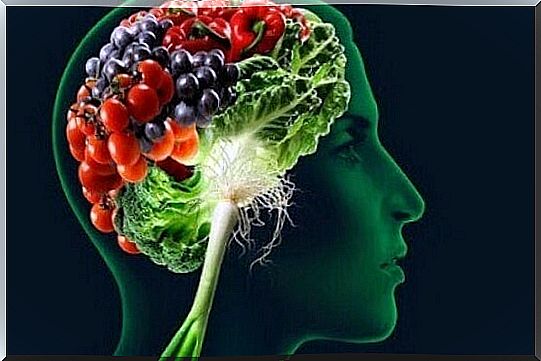Omega-3, The Best Neuroprotector

Omega-3 fatty acids act as very powerful neuroprotectors. Thanks to them, we improve our cognitive functions, we prevent depression and we protect ourselves from oxidative disorders and inflammation. Knowing this is important, because if one notion is obvious, it is because our modern diet is increasingly poor in essential nutrients of this type.
For starters, it seems important to know that almost 8% of our brains are made up of this type of docosahexaenoic acid (DHA). The latter performs vital functions in our neural structures. In addition, it has been shown that omega-3 is also essential for optimizing fetal development. Maintaining a diet rich in this component during pregnancy is often linked to intelligence and good cognitive performance.
It is no accident that our brains need this type of polyunsaturated fatty acid. We know, for example, that the greatest evolutionary “leap” in our brain development took place 200,000 years ago. It was during this period, as many deposits demonstrate, that our ancestors began to live around rivers in search of the proximity of the sea to fish. This diet rich in fish, molluscs and amphibians gave us better energy and better nutrients to further optimize brain development.
Experts even tell us that omega-3 is a key nutrient that should be part of our diet “from cradle to grave”. Moreover, by preserving this popular wisdom which characterizes them so much, our grandmothers do not hesitate to repeat to us once and then another that “we must eat fish”. And no, they are not mistaken, there is no doubt. On the other hand, there is a little information that our dear grandmothers may not know.
Today, our seas and oceans are increasingly contaminated. As a result, all those blue fish that were originally so healthy now contain excess mercury and dioxins. However, the good news is that omega-3 is found in many other foods such as seeds, dried fruits, vegetables … Increasing the consumption of these different foods will make our brains very grateful to us.

Omega-3 helps us have more agile and resilient brains
The studies done to date regarding the impact of omega-3s on our brains could not be more positive. For example, it was found in a lab that mice that received omega-3 supplements show better brain plasticity, better synapses between nerve cells and better connectivity. In addition, we have interesting work in which it has been shown that this type of fatty acid reduces depressive symptoms and memory loss.
Until today, this nutrient has been known primarily to naturally support cardiovascular health. This has caused the incredible proliferation of all types of dietary supplements and thanks to them, the promise of preventing ischemic heart disease, for example. Now, nutritionists ideally recommend that we always opt for a correct diet, that is to say, “natural”.
Doing it this way will allow us to enjoy a set of benefits that are advisable to know.
- Maintaining a diet rich in omega-3s doesn’t just take care of our heart. For example, it was discovered that this nutrient does not benefit patients with Alzheimer’s, but on the other hand benefits those with mild cognitive deterioration.
- In fact, omega-3 has a neuroprotective effect. It is not “caring”, but consumed throughout our life in adequate doses, it allows us to reach advanced ages with a more agile and resistant brain.

- It is known to improve short-term memory, verbal memory, attention and speed of processing information.
- Another interesting aspect relates to our state of motivation. If omega-3 has the ability to reduce (not cure) the symptoms associated with depression, it is for a very real reason. This type of fatty acid facilitates the transport of serotonin. However, it will not act as fluoxetine (prozac), but it does establish the chemical and connective processes that improve our well-being.
Curiosity, social connections and the right nutrients for a healthier brain
Having a healthy, nimble brain with good memory and always receptive to learning depends on many factors. It is not enough to learn languages, to play any instrument or to increase the number of books we read per month. Factors such as good stress management, an ability to enjoy meaningful and rewarding social relationships are also positive points.
If we take care of these aspects, one more of significant importance will be missing: diet control. Our modern life and the type of crops we grow in those plants, fruits and oils that we buy in supermarkets are not always as healthy as we would like them to be. Eating well takes effort, willpower, and some wisdom.
It is not enough to cover, for example, our omega-3 deficits with supplements from the pharmacy, the ideal is to use your own foods, and if they are organic it is even better than better.

Now let’s take a look at some examples of the omega-3 rich options we have at our fingertips:
- Linseed oil
- Chia seeds
- Linseed
- Pumpkin seed
- Oil
- Olive oil
- Salmon
- Oysters
- Crab
- Sardines
- Cod
- Nuts
- Broccoli
- Spinach
- Tofu
To conclude, let us have no doubt, good brain health, good memory and good motivation do not depend solely on our attitudes, mental concentrations or reasoning. They also depend on how we take care of ourselves and our diet. So let’s invest a little more in order to gain health and well-being.








